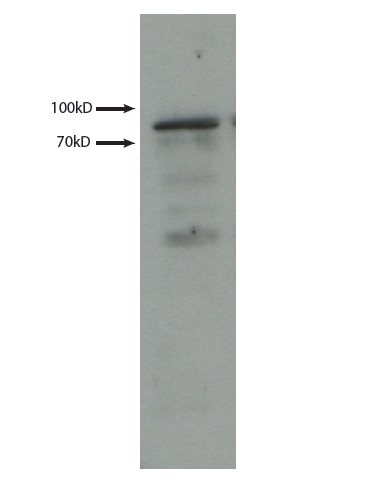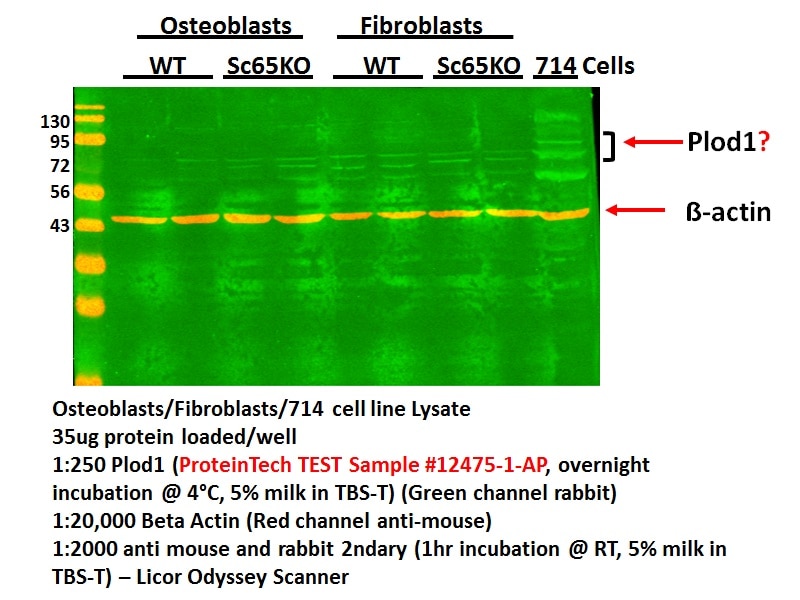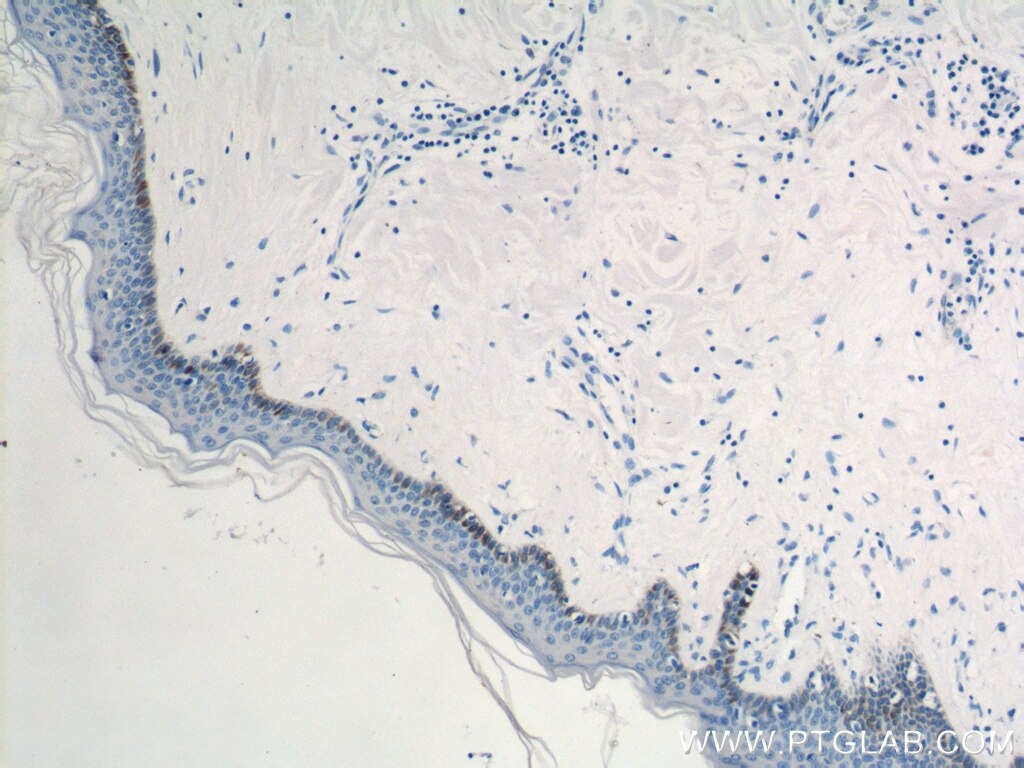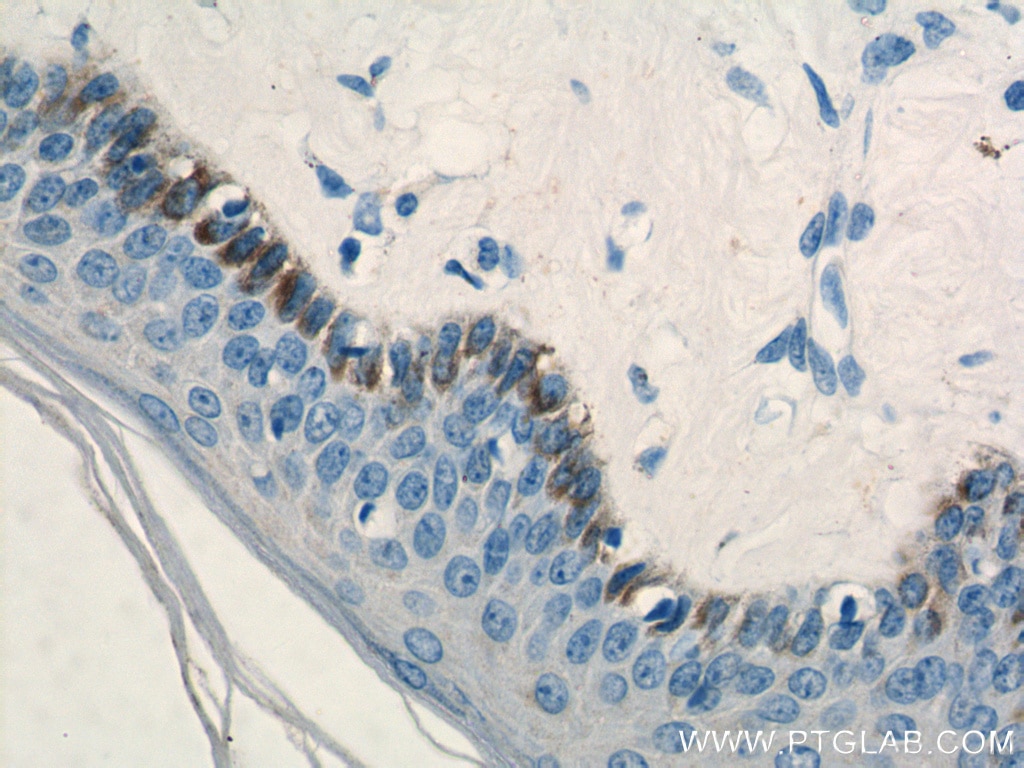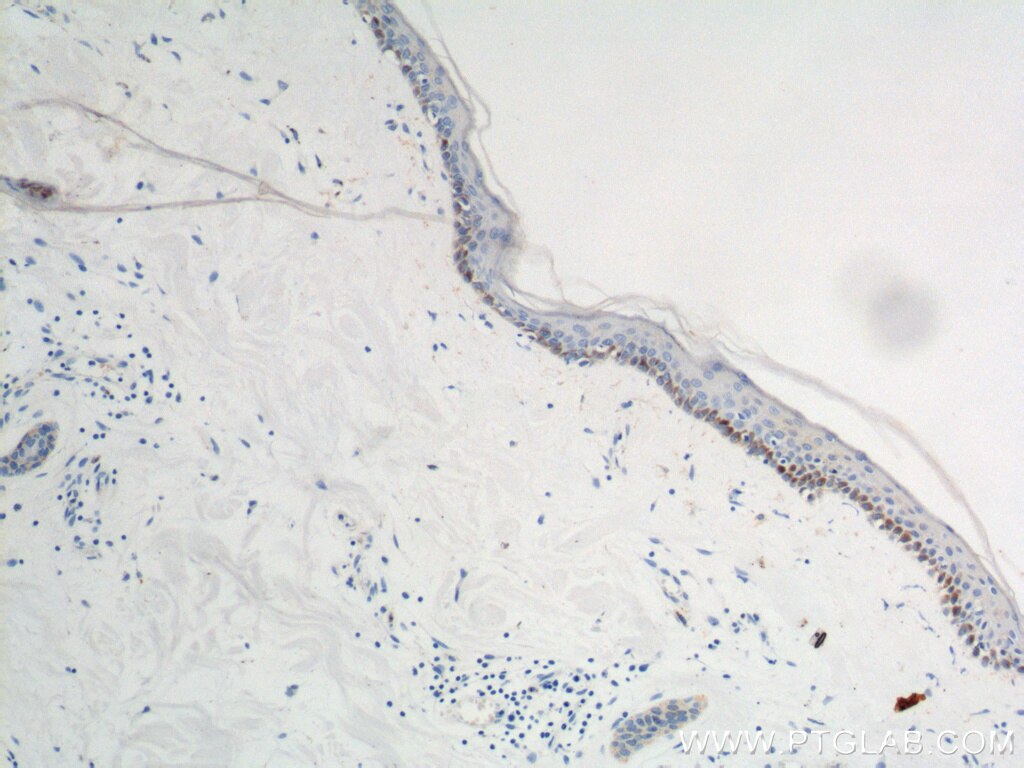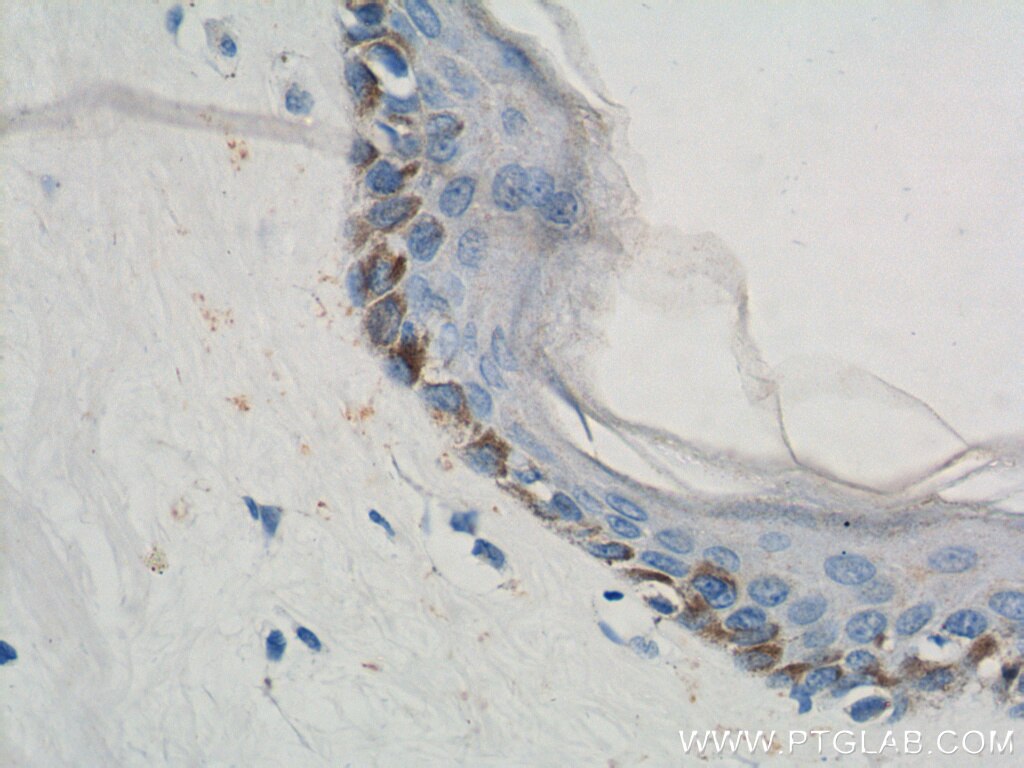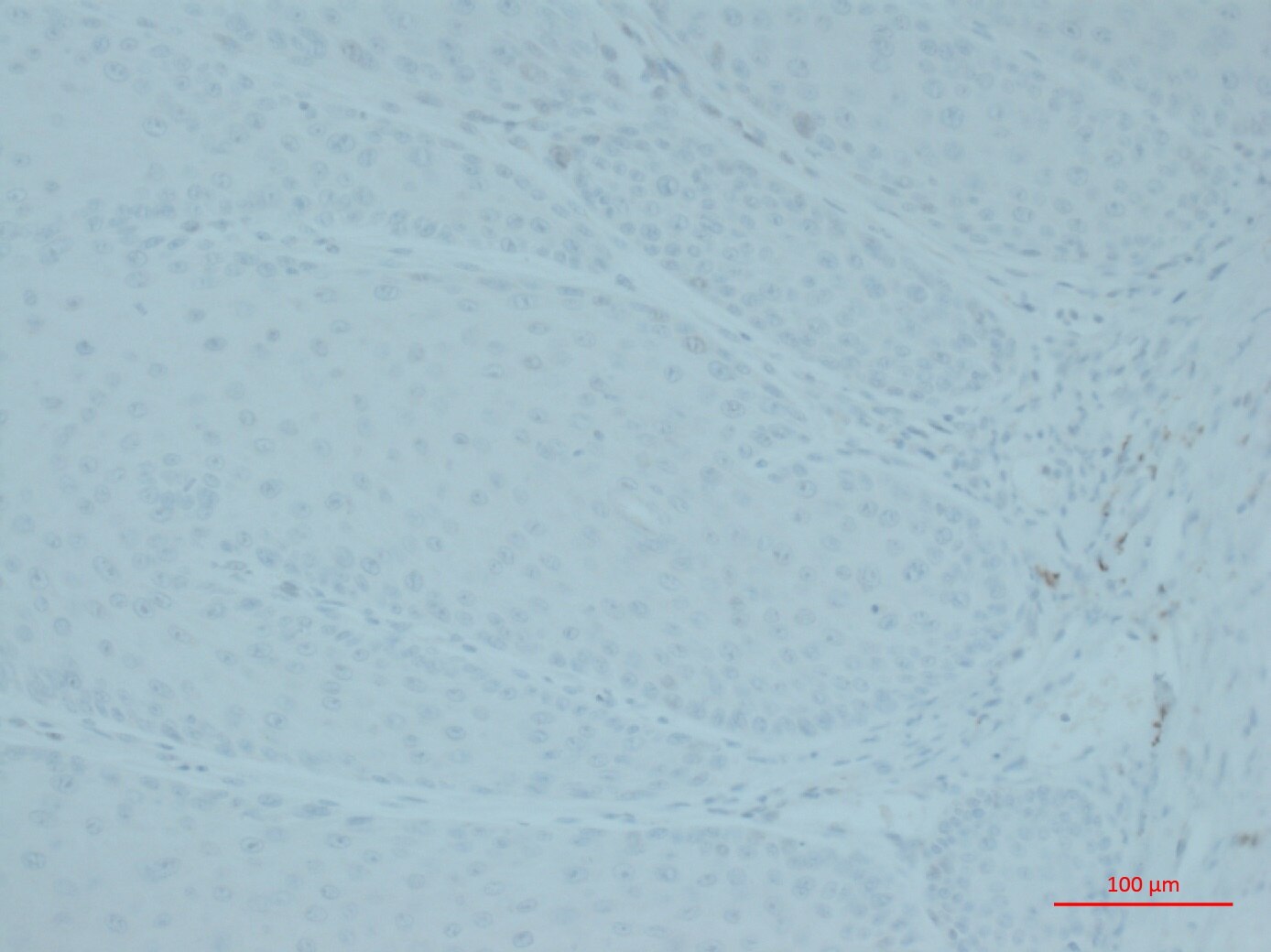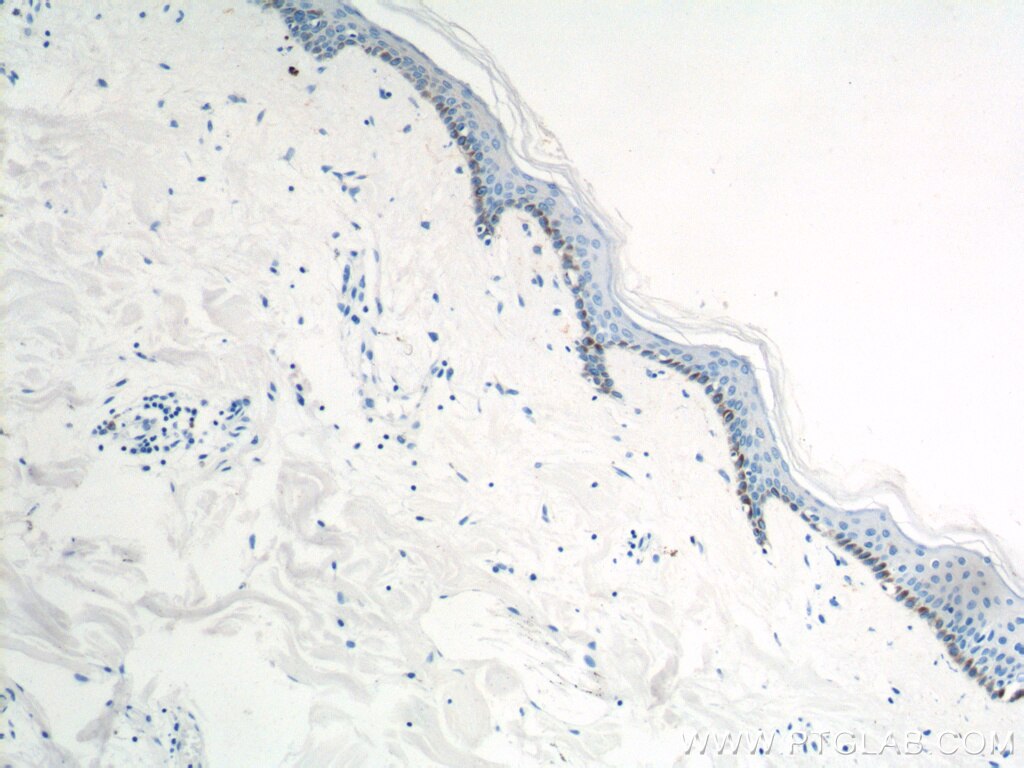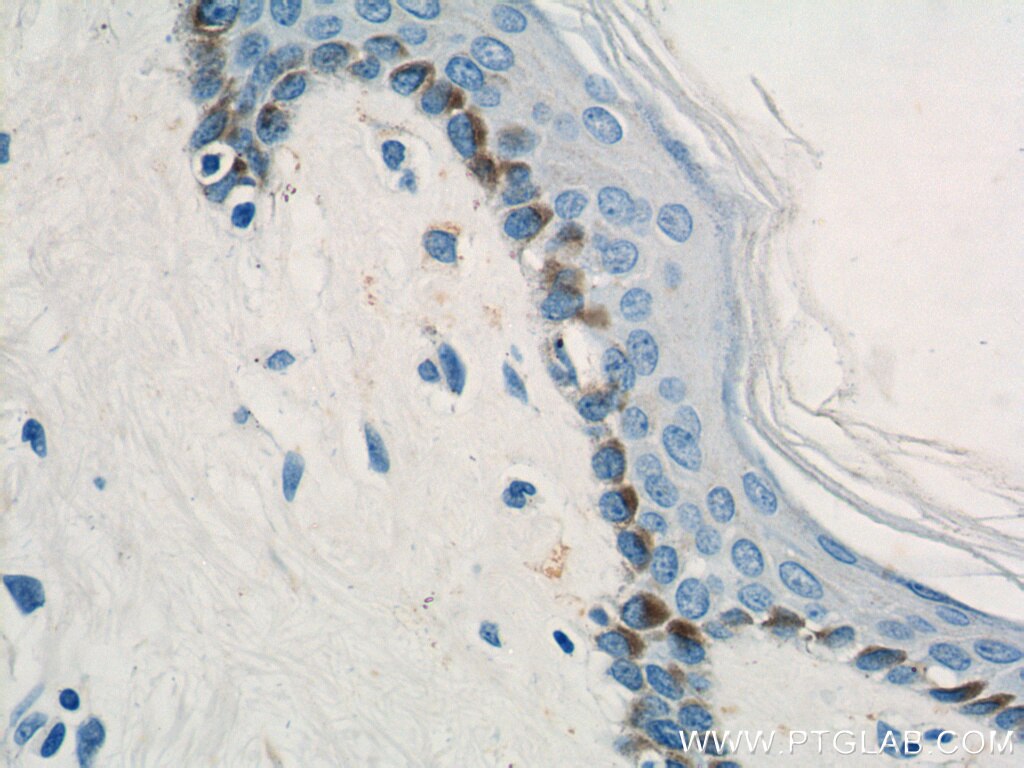PLOD1 Polyklonaler Antikörper
PLOD1 Polyklonal Antikörper für WB, IHC, ELISA
Wirt / Isotyp
Kaninchen / IgG
Getestete Reaktivität
human, Maus, Ratte
Anwendung
WB, IF, IHC, ELISA
Konjugation
Unkonjugiert
Kat-Nr. : 12475-1-AP
Synonyme
Galerie der Validierungsdaten
Geprüfte Anwendungen
| Erfolgreiche Detektion in WB | Fibroblastenzellen, Maus-Fibroblastenzellen |
| Erfolgreiche Detektion in IHC | humanes Hautkrebsgewebe, Hinweis: Antigendemaskierung mit TE-Puffer pH 9,0 empfohlen. (*) Wahlweise kann die Antigendemaskierung auch mit Citratpuffer pH 6,0 erfolgen. |
Empfohlene Verdünnung
| Anwendung | Verdünnung |
|---|---|
| Western Blot (WB) | WB : 1:200-1:1000 |
| Immunhistochemie (IHC) | IHC : 1:100-1:400 |
| It is recommended that this reagent should be titrated in each testing system to obtain optimal results. | |
| Sample-dependent, check data in validation data gallery | |
Veröffentlichte Anwendungen
| WB | See 4 publications below |
| IHC | See 1 publications below |
| IF | See 1 publications below |
Produktinformation
12475-1-AP bindet in WB, IF, IHC, ELISA PLOD1 und zeigt Reaktivität mit human, Maus, Ratten
| Getestete Reaktivität | human, Maus, Ratte |
| In Publikationen genannte Reaktivität | Maus |
| Wirt / Isotyp | Kaninchen / IgG |
| Klonalität | Polyklonal |
| Typ | Antikörper |
| Immunogen | PLOD1 fusion protein Ag3103 |
| Vollständiger Name | procollagen-lysine 1, 2-oxoglutarate 5-dioxygenase 1 |
| Berechnetes Molekulargewicht | 727 aa, 84 kDa |
| Beobachtetes Molekulargewicht | 85-88 kDa |
| GenBank-Zugangsnummer | BC016657 |
| Gene symbol | PLOD1 |
| Gene ID (NCBI) | 5351 |
| Konjugation | Unkonjugiert |
| Form | Liquid |
| Reinigungsmethode | Antigen-Affinitätsreinigung |
| Lagerungspuffer | PBS mit 0.02% Natriumazid und 50% Glycerin pH 7.3. |
| Lagerungsbedingungen | Bei -20°C lagern. Nach dem Versand ein Jahr lang stabil Aliquotieren ist bei -20oC Lagerung nicht notwendig. 20ul Größen enthalten 0,1% BSA. |
Hintergrundinformationen
PLOD1, also named as LLH, PLOD and LH1, forms hydroxylysine residues in -Xaa-Lys-Gly- sequences in collagens. These hydroxylysines serve as sites of attachment for carbohydrate units and are essential for the stability of the intermolecular collagen cross-links. PLOD1 catalyses the hydroxylation of lysine residues during the posttranslational modification of type I collagen, the major protein of bone.
Protokolle
| Produktspezifische Protokolle | |
|---|---|
| IHC protocol for PLOD1 antibody 12475-1-AP | Protokoll herunterladen |
| Standard-Protokolle | |
|---|---|
| Klicken Sie hier, um unsere Standardprotokolle anzuzeigen |
Publikationen
| Species | Application | Title |
|---|---|---|
PLoS Genet Cyclophilin B control of lysine post-translational modifications of skin type I collagen. | ||
Bone Decrease of lysyl hydroxylase 2 activity causes abnormal collagen molecular phenotypes, defective mineralization and compromised mechanical properties of bone. | ||
Sci Rep Lysyl hydroxylase 2 mediated collagen post-translational modifications and functional outcomes | ||
J Pharmacol Exp Ther Minoxidil Cannot Be Used To Target Lysyl Hydroxylases during Postnatal Mouse Lung Development: A Cautionary Note. | ||
Front Genet Mating Stimulates the Immune Response and Sperm Storage-Related Genes Expression in Spermathecae of Bumblebee (Bombus terrestris) Queen. |
